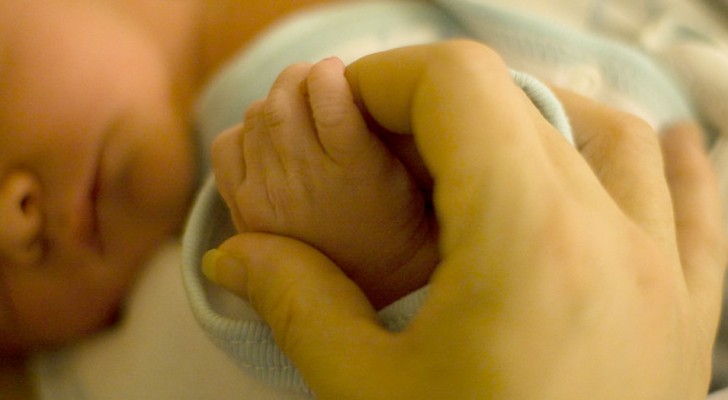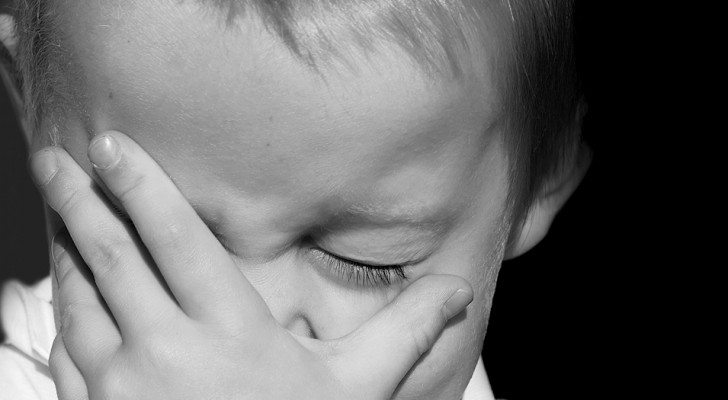If we allow a child to treat parents or grandparents badly, the child will never respect anyone

In a world where many feel entitled and the lack of respect is the order of the day, it would appear that not all children and this also includes even some adolescents, are not able to immediately learn the magical words like "Thank you", "Please", "You are welcome", "Sorry", and "May I?".
These are words that we hear more and more rarely spoken by children and young people, which implicitly reveals the roots of their inappropriate behavior.
This rude behavior is destined to evolve and become even worse if as parents we do not take responsibility for the education of our children and if we fail to teach them how to respect other people and the things that surround us.

A parent should try as much as possible to teach their child how to manage emotions (a task, alas, which is also very difficult even for many adults) and how to express their emotions without disrespecting other people, whoever they are. We must remember, however, that when children and adolescents are manifesting outbursts of anger, that prevail over all other emotions, they are unable to think clearly.
These are moments in which their brains disconnect - and they cannot connect emotionally with us - and, therefore, it becomes absolutely useless to try to explain anything to them. In these cases, it is better to avoid even resorting to threats or punishments because the child, dominated mainly by anger, will remember only those words and will leave aside any kind of reasoning or teaching.

"Our youth love luxury, are rude, make fun of authority and have no respect for the elderly. Today's children are tyrants. They don't get up when an old man comes into a room, they talk back rudely to their parents."
Does it seem that this sentence reflects your situation and, more generally, the tendency of today's children to become more and more rude and annoying?
Well, to be honest, it is a phrase written by Socrates, the famous Greek philosopher, 2400 years ago!
In fact, children, but especially adolescents, have created problems since ancient times - adolescence is, in fact, a very important moment of transition, in which a child is trained to become the person they will be when they have "grown up".
This is why it is very important for adolescents to be accompanied and guided, during this phase of doubts and questions, by their parents, who should not be seen by the children so much as authoritarian figures, but rather as real guides to whom they can ask questions.

With the threats, as mentioned above, you will not get anywhere - in the face of disrespectful behavior, it is always better to remain calm and try not to be overcome by the anger of the moment.
But what to do, practically, when we find ourselves in the hands of an insolent and unscrupulous child, who continues to behave badly, perhaps encouraged by a slightly too permissive upbringing, to make them change direction? How can we correct some of their unacceptable behavior?
Here are five tips to follow to take or regain control of the situation:
Educate right away. Even very young children are able to understand the rules - so, explain them! Over time, children will learn to apply the rules correctly and to implement naturally valid and appropriate behaviors.

Stop protecting them excessively. Trying to protect children too much can be, in some way, as if we are giving them a bad upbringing. By being constantly eager to always offer them the best, preventing them from colliding with the real problems of life, we are not aware that we are actually "hurting them".
Because, in this way, children will never be prepared to face the many adversities that will arise throughout their lives. We, therefore, need to avoid satisfying their every single request just because we do not want to see them crying, angry or dissatisfied.
Set limits. If we establish a rule, it must be followed from the very beginning and the parent must be the first to set a good example. If your child responds badly it is because maybe it is not clear how far they can go with their behavior - try to set clear and precise limits for you and your child.

Consistency and perseverance. Punishments are totally useless, so avoid "no TV for a month" threats because they won't get you far and also because you will hardly be able to keep your word.
A punishment must be a penance, therefore, two hours without TV are more effective than threats such as "a month without TV"' (which then will hardly ever really be maintained for a whole month).
Be discerning. As good parents, we must be able to distinguish the important things, on which we do not tolerate exceeding the limit, from the more superfluous things. We often insist on things like "wash your mug after having breakfast" and then allow insults and far more serious behavior to pass. What to do then?
It is useless to use force, let us try to make the child understand the consequences of their attitude and behavior. Let them understand that it is much easier and more productive to behave well with others and generate empathy than to continue with annoying and disrespectful behavior.
And have you had any experiences in this regard?





